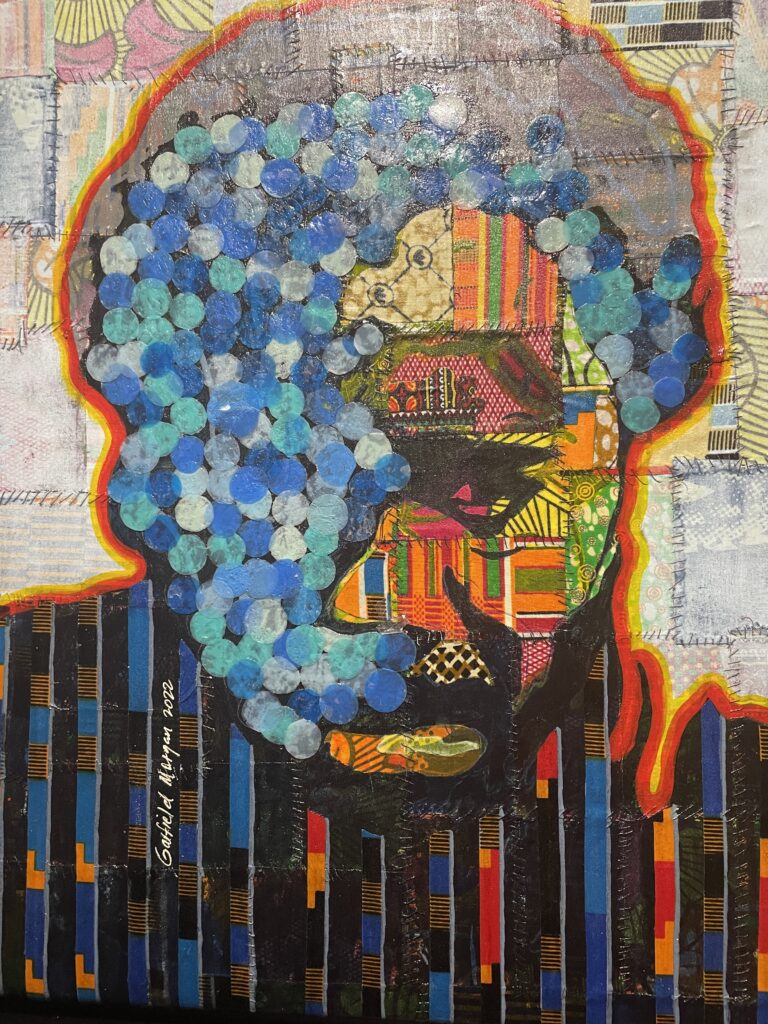Religiousness and spirituality of the Church in Africa

The history of the church is taught in schools, and in universities, theology is a course that cannot be avoided. Seminaries and Bible schools are uncountable. The remark one can make is that religion, in general, and Christianity or the Church in particular is growing ‘larger and larger’ in Africa while it is taking on other dimensions in western countries.
Christianity and direct impact on human life in the West
The experience of a youth pastor in a church in the US made me realize that one of the surest ways to lose your job as a pastor in the US is to answer the question, “what do you think should be done to increase the congregation in our church?” with “Let’s keep praying”. A non-American youth pastor learned his lesson the hard way when he nearly made that mistake. He was advised to think and implement concrete measures and strategies that could attract more youngsters into that church. One could say that many churches in the West seem to be more action and results-oriented. They do not limit themselves to reading the ‘word of God’ as is done in Black churches in the US and non-Catholic or charismatic churches in Africa, to singing their heart out and to dancing with all the seriousness in one’s body and soul in the process of ‘praising God’. Church services are, generally, very informal and doctrine-loaded in the West. Bible study groups ponder over the sermon of the pastor, after the latter is done preaching and Sunday school starts. Another factor that stands out is that in the West, in general, is that Christianity is now oriented towards problem-solving and as a result many influential members of the church have turned into motivational speakers. They hold training sessions, organize workshops and write books on daily life challenges like “how to end an addiction”, “how to be a successful business person”, “how to bounce back after a harsh experience in life”. T.D. Jakes, Victoria and Joel Osteen, Cindy Trimm and many other pastors in the US seem to have embarked on that path. This does not mean that the church is perfect in the West or in the US. We hear of shocking scandals of adultery, abuse, child or youth molestation, financial scandals and more.
The evil at the root of the Church
Much injustice and cruelty have occurred in the name of the church. Race inequality was justified using the Bible; apartheid in South Africa and racial segregation in the US were said to be a Biblical prescriptions colonization was equally presented as the endeavour to bring religion to heathens, and the slave trade was justified and founded on the Church. The Church of England has acknowledged the despicable role they played in that bleak chapter of world history.Archbishop of Canterbury Rowan Williams and Archbishop of York John Sentamu made statements along those lines some years ago. Dr Williams said the following, in an attempt to support the necessity for the apology the church owes societies that have suffered from the slave trade, “The body of Christ is not just a body that exists at any one time, it exists across history and we therefore share the shame and the sinfulness of our predecessors and part of what we can do, with them and for them in the body of Christ, is prayer for acknowledgement of the failure that is part of us not just of some distant ‘them’.” This statement certainly raises a controversy since many are of the view that prayers are not enough, and reparation is rather what African societies need. Prominent bodies that were the backbone of the British Church recall their role in the atrocities of the slave trade. In Britain, the Society for the Propagation of the Gospel in Foreign Parts confessed their heartless practices. The organization owned the Codrington Plantation in Barbados, where slaves had the word “Society” branded on their backs with a red-hot iron. This certainly does not express an iota of humanity or logic, it is simply a blatant exposure of internal self-contradiction, and it reveals the gap between the ‘apologia’ and the ‘reality’ behind western missionary activities. The Gospel was the apologia and harsh mercantilism was the sole and main concern. The advocates of compensation certainly realize that it is not always the solution, especially when it is not done with the spirit of justice, as this instance related to the “Society” reveals. When the emancipation of slaves took place in 1833, compensation was paid not to the slaves but to their owners’.
The Church in Africa
There could not be a better institution than the Church, when it comes to alleviating the pains that bedevil Africa. If the Church were practising the values it purports to be built on – love, justice, honesty and hard work – that is what it would have been known for in Africa and these four words are enough to considerably change life on the continent, for the better. That reminds me of the wisdom in Rwandan President Paul Kagame’s decision, to insist that every pastor in Rwanda hold a degree in theology, so that his country can be spared the scams unfolding in many parts of Africa in the name of the Church. While the scope and power of the Church is being checked and controlled so that discipline, honesty, accountability, morality and prosperity of the human being is achieved or guaranteed in the West, in general, the amplitude of the Church in Africa is swelling, while the quality of human life deteriorates. Many churches seem to be leaving the West, in order to relocate to Africa, and while this is going on, African countries descend deeper and deeper into financial and moral corruption, and horrendous governance. A quick glance at the continent reveals that countries with the largest number of churches are the ones in which practices and values on which the cornerstone of the church lies (in its initial days of the Church, I guess) are thrown away. African countries with the most acute problems are the most religious ones, church-wise. This makes me think that most of those Africans are churchgoers but not Christians. A scholar once said that many Africans are religious but not spiritual because if the spirit of God were in them, those African ‘Christians’ would not behave the way they do. More spirituality is, therefore, needed in Africa, not religiousness or “church going habits”. Religion is a personal practice and belief and I respect everyone’s religious inclination and I have never doubted the existence of God, but I am disheartened when I see how the tenets of religion have been turned upside down for the interest of some few gluttons and individuals. Religion needs to be cleansed of the impurities and the Church needs self-examination that will certainly bring more happiness, spirituality, prosperity and Godliness to citizens. That reminds me of the Ghanaian poet Kofi Anyidoho’s verse: “Go tell Jesus His messengers have come but have forgotten His words of Life”.
Moussa Traoré is Associate Professor at the Department of English, University of Cape Coast.






